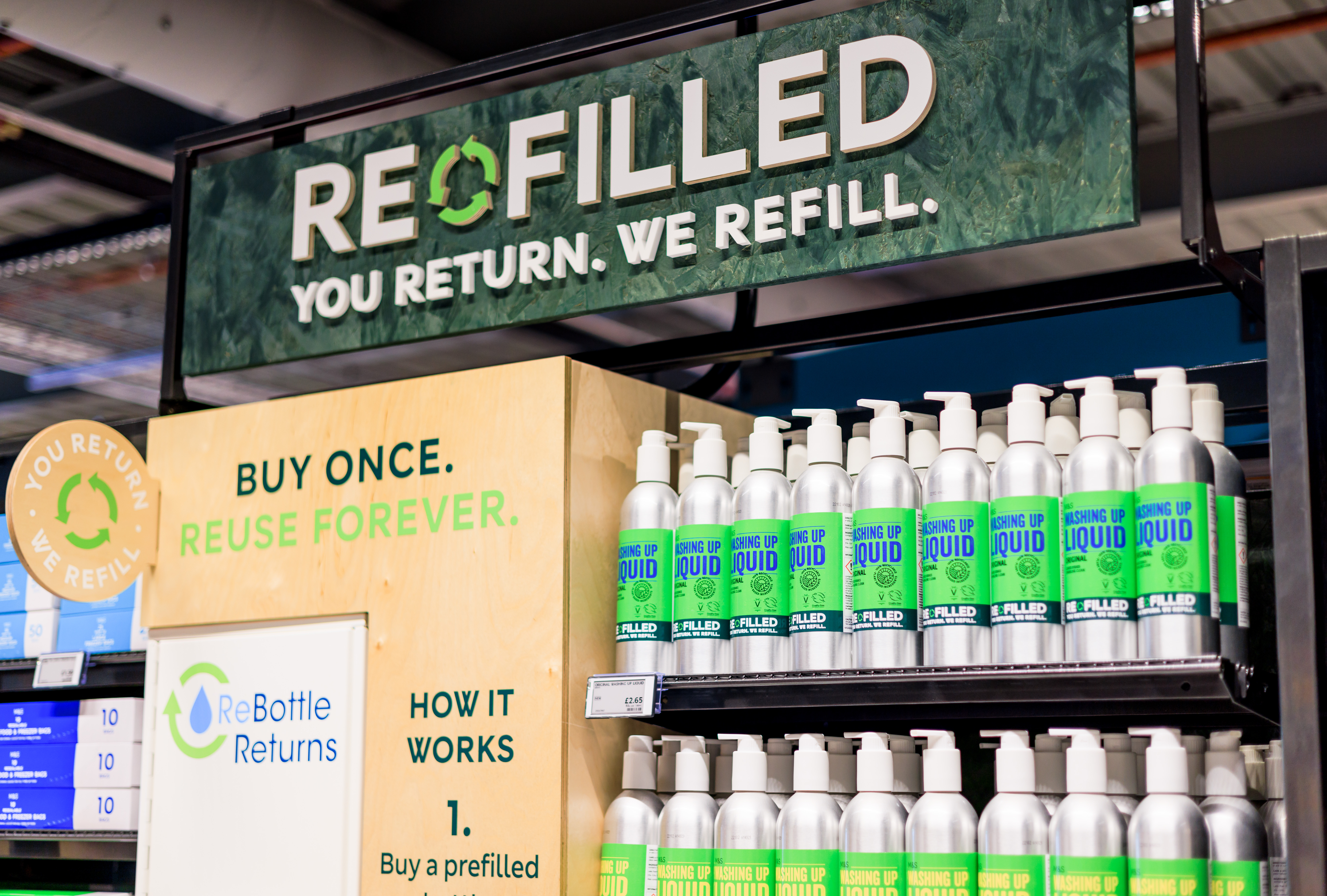As part of our net zero by 2040 strategy, we've identified 'Circular Economy' as one of our 10 key pillars. We are working across our value chain to drive circularity and reduce waste in key areas such as used clothing, food waste, packaging, and carrier bags.
We’ve started our transition to new circular business models, by improving the recyclability of our packaging and goods, increasing the durability and use of recycled materials in our products, and introducing refill and reuse options for customers. We support the transition to a circular economy and will prioritise business model innovation, working with our partners to put circular ways of working into practice.
Tackling food waste
Today several billion tonnes of food are produced each year globally. Many food manufacturers and retailers take waste prevention seriously as part of their commitment to responsible business conduct and sustainability.
Addressing food waste represents a significant opportunity as it could lead to improved food security for people and communities, reduced demands on the planet, and reduced costs for companies in the food value chain and their respective customers.
We've committed to reducing our food waste by 50% by 2030 and for 100% of our edible surplus food to be redistributed via our charity partnerships by 2025.
In July 2022, we announced we would remove best before dates from 300 fresh fruit and veg products to help reduce in-store and at home food waste. You can read more here.
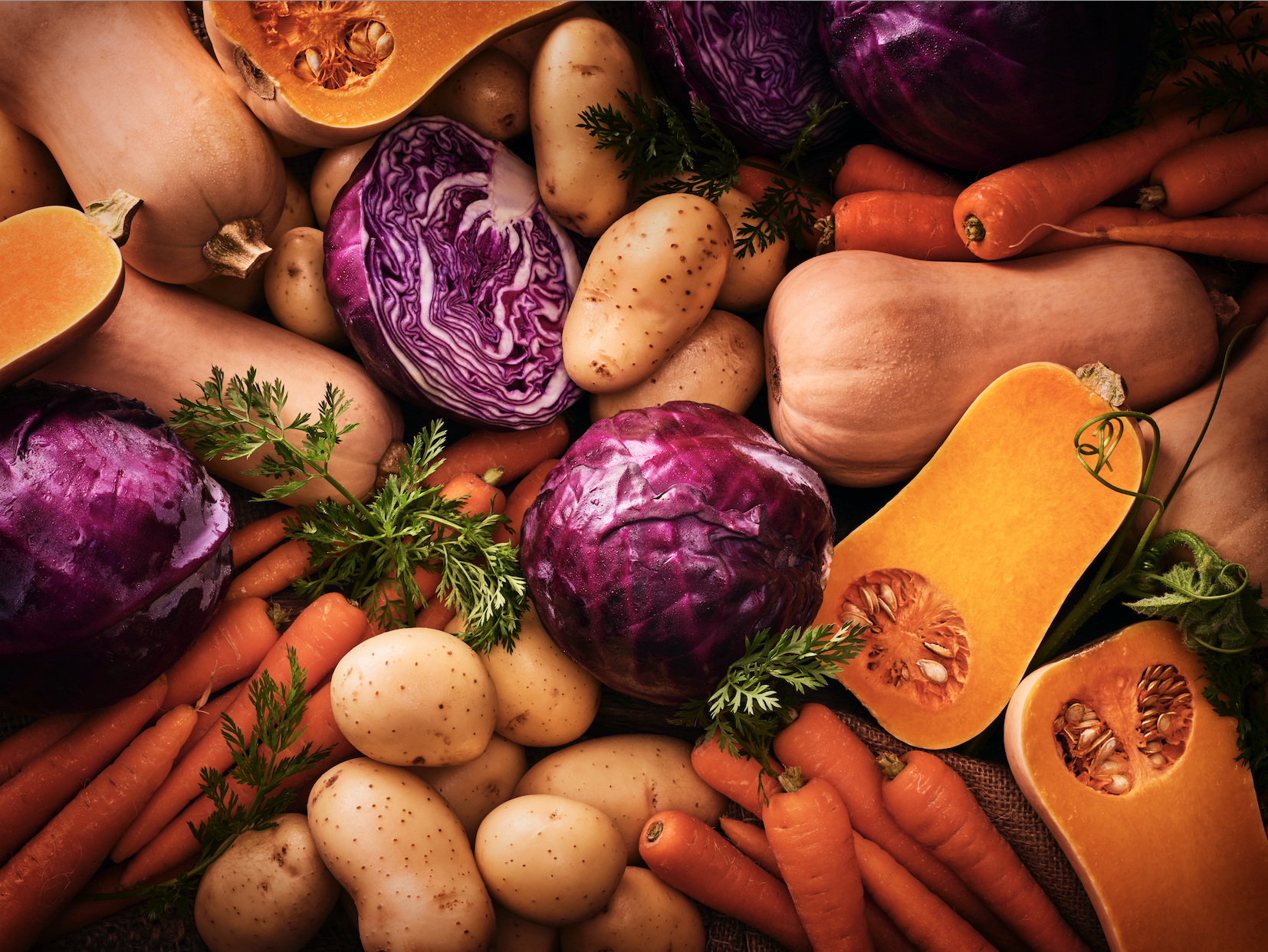
Our work with Waste and Resources Action Programme (WRAP), Consumer Goods Forum, Institute of Grocery Distribution, British Retail Consortium (BRC) and our suppliers has highlighted the need for us to focus not only on our stores and logistics, but also on reducing waste from our supply chain and engaging customers to store and use food more efficiently.
Since 2017/18 we have reduced food waste from our UK store operations by around 30%. We continue to refine and improve our plans to deliver our target of a 50% reduction by 2030.
To better match catalogue and product display to customer demand, with the objective of a substantial reduction in food waste, we will roll out new forecasting, ordering and space, range and display systems. We are also looking at areas where we can remove best-before dates such as fruit and vegetables, focusing instead on product quality to determine shelf life. We continue to innovate in our approach to reducing food waste by creating delicious new products from our surplus food.
Examples include:
- Creating garlic bread from freshly baked in-store baguettes, which are then sold as frozen
- Smoothies made from surplus fruit and veg
- ‘Go Bananas’ bags, made up from extra-ripe bananas and sold at a discount, including two recipes that have bananas as ingredients, such as banana bread and vegan banana muffins
To help our journey to reduce food waste, we are working with a number of industry groups, including WRAP and the British Retail Consortium. We are signed up to the 2030 Courtauld Commitment, which helps to target reducing food waste in the UK food and drink sector.
M&S Food is too good to waste, so we continue to work in partnership with Neighbourly to redistribute surplus food from our stores to more than 1,450 hyper-local charities and community organisations. Our redistribution programme turns great-tasting surplus food into tasty meals and reduces waste.
Our aim is that 100% of edible surplus food is redistributed. In 2021/22, we donated 56% of our edible surplus food from our store operations. This came to 6,231 tonnes out of a possible 11,288 tonnes of edible surplus.
Since the launch of our Surplus Food Redistribution app in April 2020, redistributed volumes have increased; however, we recognise we need to do more to be at 100% by 2025. To deliver this increase we have identified the following improvement areas:
-
Include edible surplus redistribution as a key measure for our stores, with targeted improvement
-
Develop our Surplus Food Redistribution App to help store colleagues donate more
-
Increase the number of M&S Café pre-packaged items included in our redistribution process
Since the cost of living crisis began, our store colleagues are now also able to take food home which would have otherwise been classed as waste.
Managing Store and Supply Chain Waste
Our M&S-operated stores, offices and warehouses in the UK and Republic of Ireland produce around 59,000 tonnes of waste, all of which is valued and retained in the economy in some form.
The majority is transit packaging, such as cardboard and polythene or unsold food. The small amount of damaged goods or clothing generated in our stores, due to accidental damage or faulty manufacturing are donated to Oxfam or Newlife. Our partner Neighbourly and Surplus Food App helps us to redistribute edible food surplus created in our stores and we have an internal policy which outlines a number of approved partners to redistribute food waste created in our depots and our supply chain. For the small amount of wasted food, which is no longer fit for human consumption, we arrange for it to be collected for anaerobic digestion to create biogas.
We send no operational waste to landfill and have been working hard to reduce the waste we create. We’re also continually improving our approach to fitting out our stores by seeking ways to reuse and refurbish equipment.
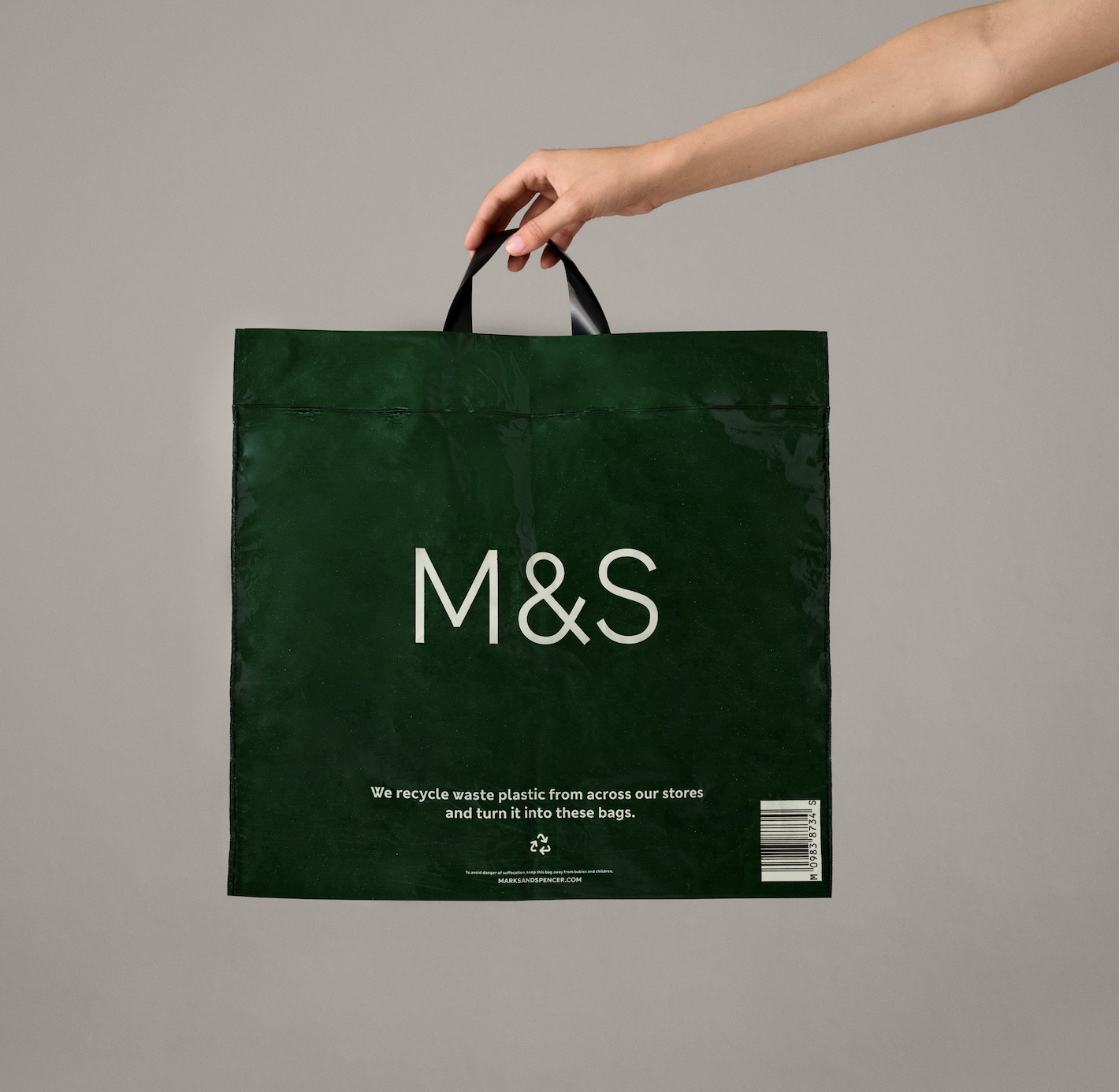

Clothing and Home Circular Partnerships
Another Life: Takeback
Since 2008, our customers in the UK have given another life to over 36 million items of clothing by placing them in one of our in-store Another Life (previously Shwopping) boxes, contributing an estimated £23 million to Oxfam’s vital work.
Another Life allows customers to drop their pre-loved clothes through collection points at all of our clothing stores.
In 2023/24 over 300k items of clothing were given Another Life through the scheme - generating an estimated £180k for Oxfam.
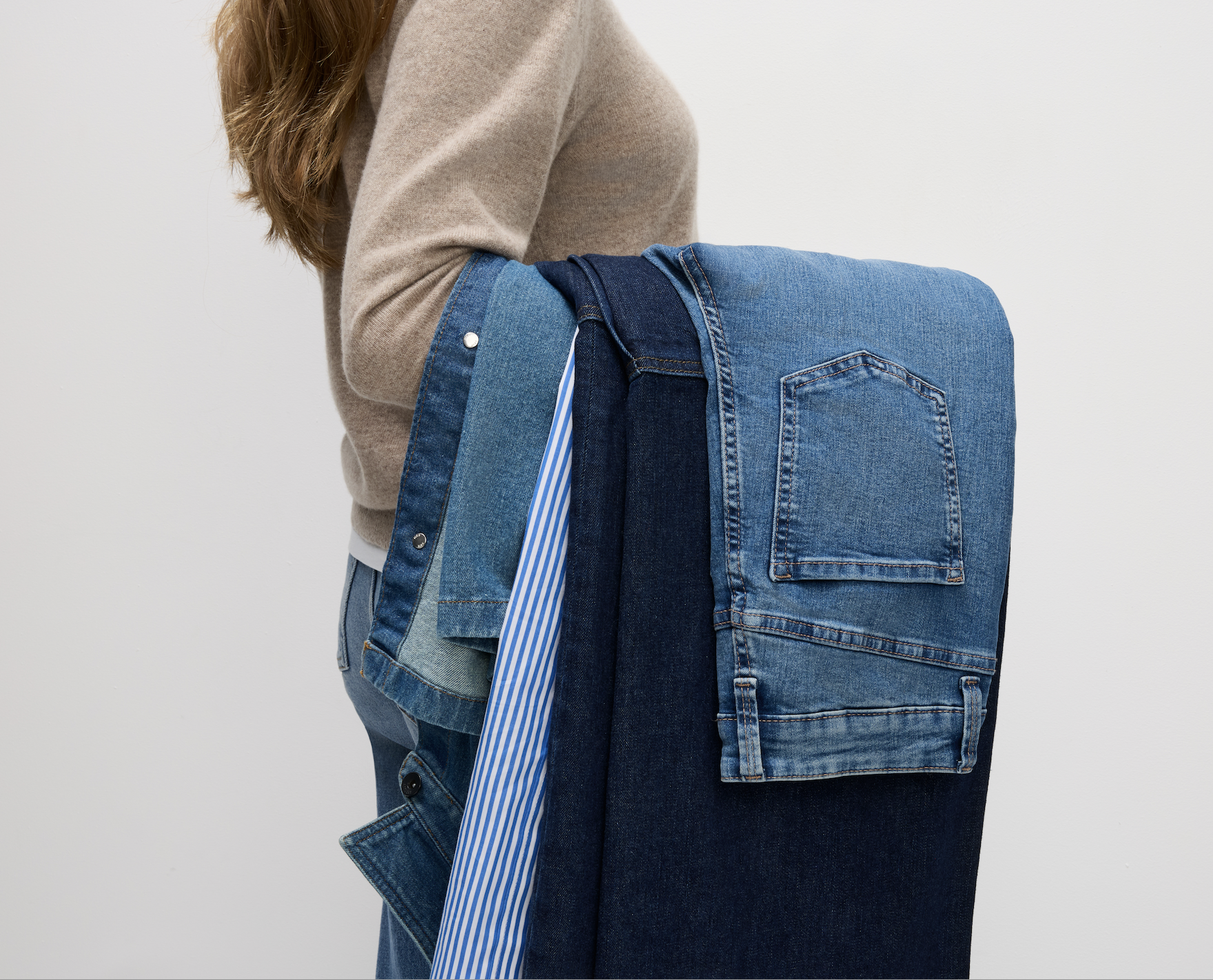
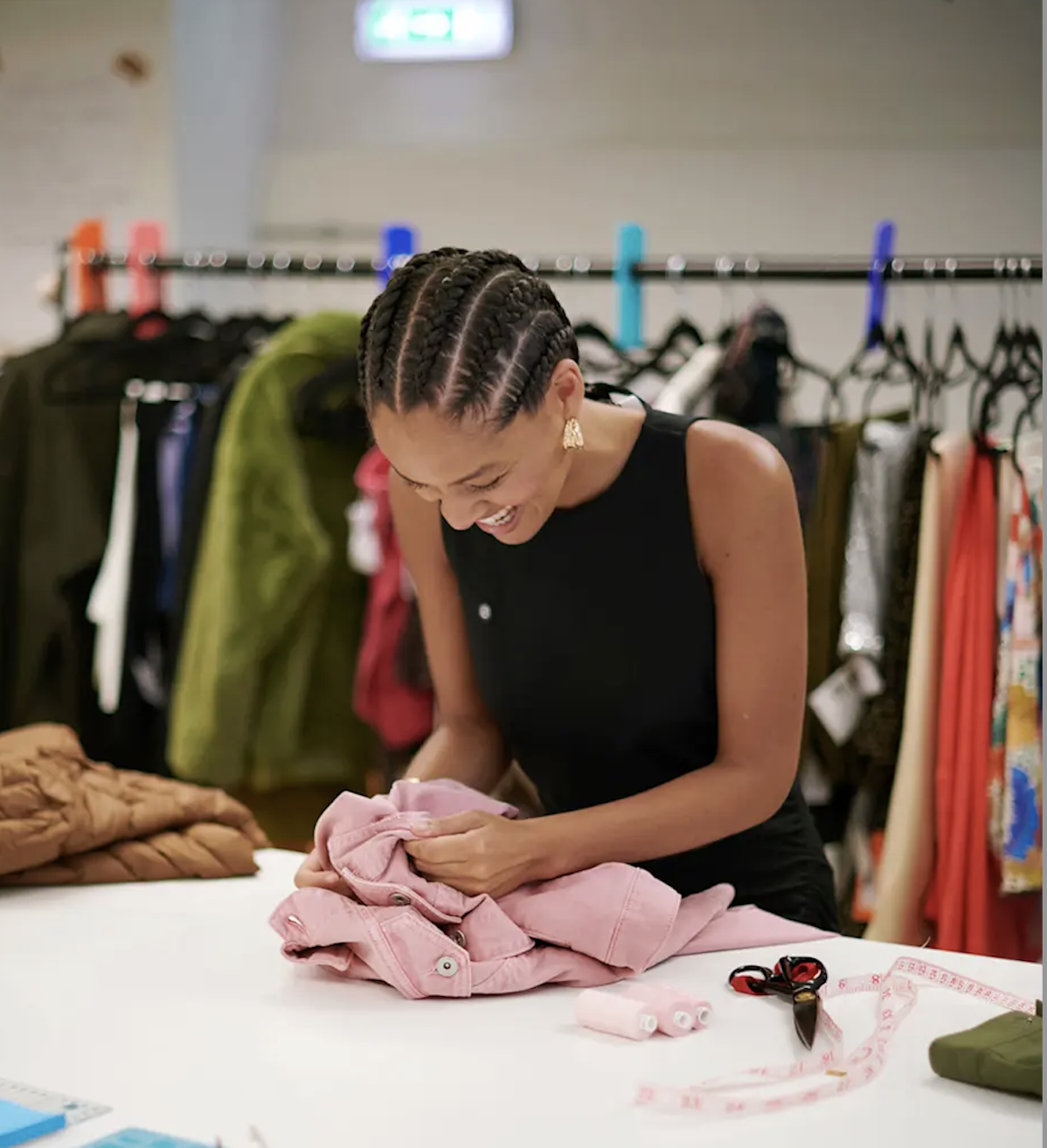
Another Life: Repairs
Through our dedicated online hub, M&S customers can select and book a range of bespoke repair services - from zip replacements to invisible knitwear mending – all through one simple online form. With repairs starting from just £5, M&S clothing can be sent, repaired by SOJOs in-house repair team and returned directly to the customers doorstep within seven to 10 days.
According to WRAP, the climate action NGO, in the UK alone, 1.6 billion items of clothing in our wardrobes aren’t being worn - which is an average of 31 items per person. The ‘M&S fixed by SOJO’ hub supports M&S customers to give their M&S clothes ‘Another life.’ and reduce textile waste, a key pillar of the retailer’s Plan A roadmap to drive the circular economy.
Another Life: Beauty Empties
We’ve partnered with HANDLE – a takeback company aiming to reduce the environmental impact of beauty packaging – to provide free in-store recycling for your empty beauty products. Simply bring in your beauty empties and pop them in one of the M&S X HANDLE branded bins at selected stores. With your old packaging, HANDLE creates staple accessories such as hairbrushes, combs, mirrors and more.
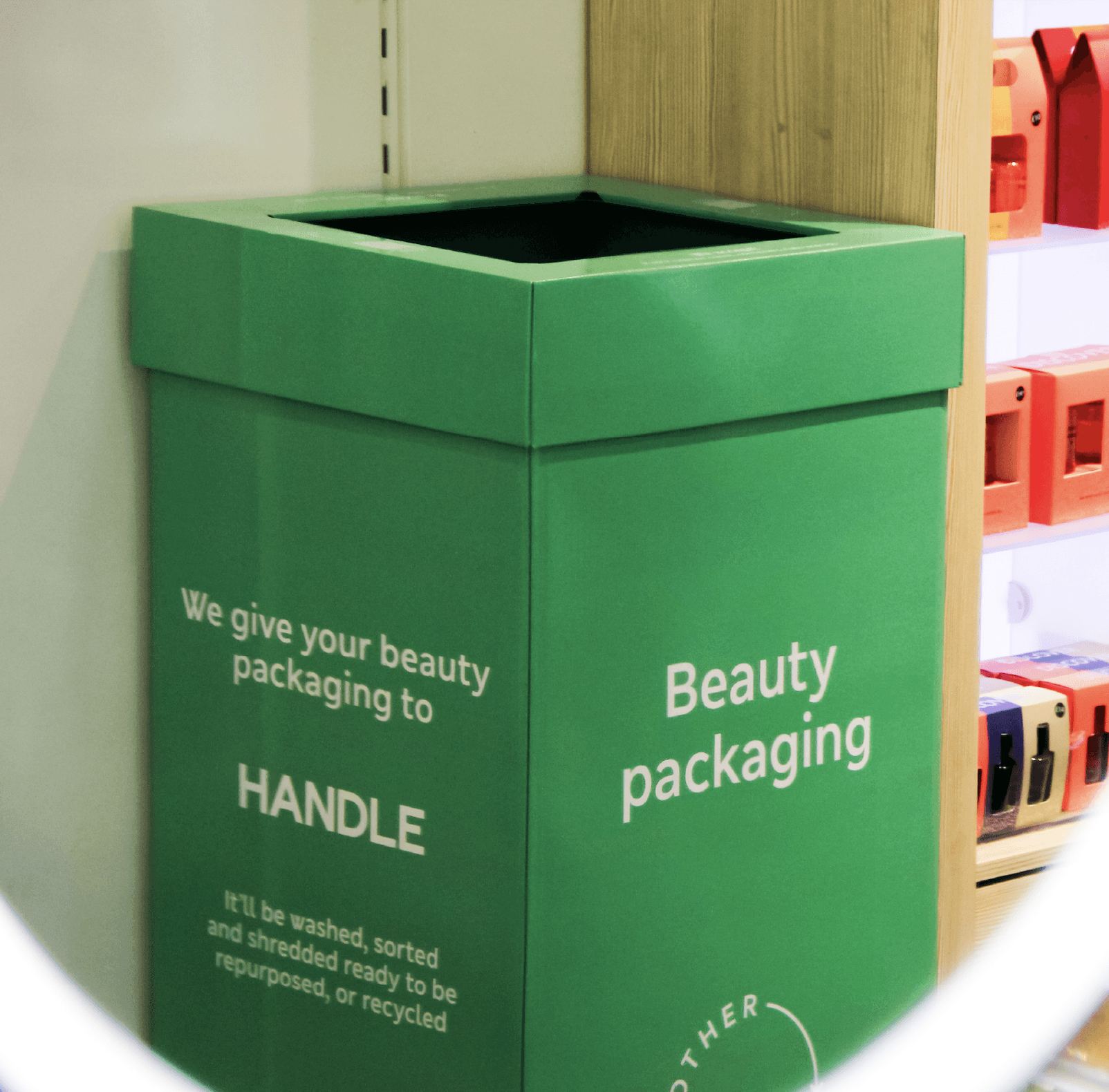
We are a signatory to Textiles 2030, a voluntary agreement that launched in April 2021 and is funded by its signatories and the UK government. Signatories will collaborate on carbon, water and circular textile targets, and also contribute to national policy discussions with the UK government
We have joined the Circular Fashion Partnership in collaboration with Global Fashion Agenda. This is a new initiative to capture and recycle textile waste in Bangladesh by bringing major brands, manufacturers and recyclers together. The objective is to find successful circular processes that reduce textile waste and generate economic benefits in Bangladesh by accelerating the fibre recycling market. The initiative focuses on Bangladesh because it offers a significant opportunity to enhance recycling of waste cotton from the country’s large garment-producing sector. Cotton is a fibre with high recycling potential if the right recycling infrastructure is available to create new textile fibre. We are working with eight factories in Bangladesh on the project. In the first year, up to February 2022, the factories started reporting on their waste and we connected more than 95 tonnes of cotton waste from the factories with textile recyclers, keeping this pure cotton fibre in the textile supply chain.

